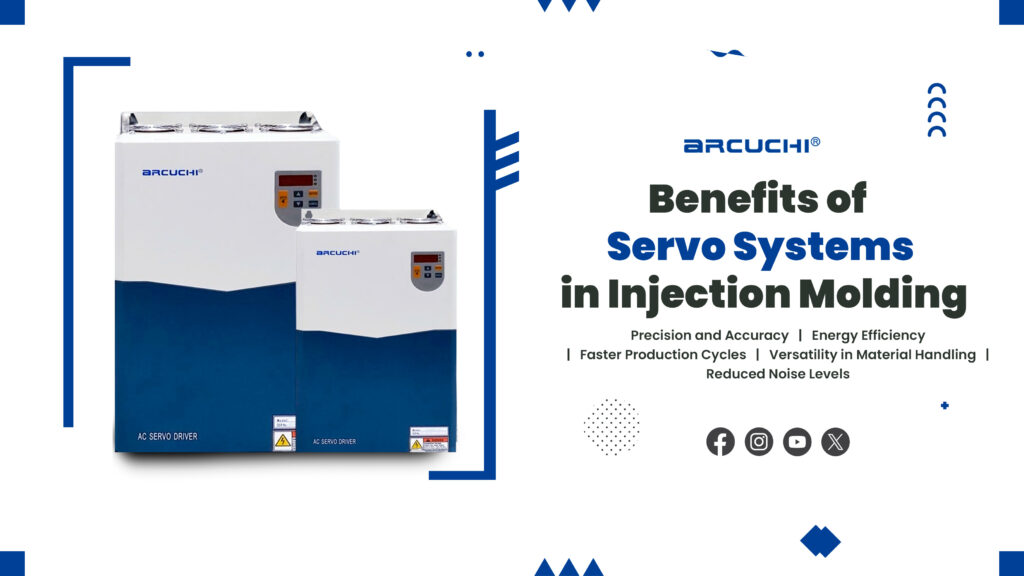Introduction
Injection molding has revolutionized the manufacturing industry, providing efficient and cost-effective ways to produce high-quality plastic components. Within this realm, servo systems have emerged as a game-changer, bringing a myriad of benefits to the table. In this blog post, we will delve into the advantages of incorporating servo controller in injection molding processes.

What are Servo Systems?
Before we dive into the benefits, let’s grasp the basics. Servo systems are advanced control systems that use feedback mechanisms to precisely control the position, speed, and torque of the machinery. In the context of injection molding, this means enhanced control over the entire manufacturing process.
5 Benefits of Servo Systems in Injection Molding
1. Precision and Accuracy
One of the standout benefits of servo Controller is their unparalleled precision. Imagine a surgeon performing a delicate operation; every movement is calculated and exact. Similarly, servo systems ensure precise control over the injection moulding machinery, resulting in consistently accurate and high-quality products.
2. Energy Efficiency
In the age of sustainability, energy efficiency is a crucial factor. Servo motor systems excel in this regard by optimising energy consumption. Unlike traditional hydraulic systems, servo motors consume power only when necessary, reducing overall energy usage and minimizing environmental impact.
3. Faster Production Cycles
Time is money in manufacturing, and servo systems contribute to significant time savings. The swift and precise movements of servo-driven injection molding machines lead to faster production cycles. This not only increases productivity but also allows manufacturers to meet tight deadlines without compromising quality.
4. Versatility in Material Handling
Servo systems provide a level of flexibility that is paramount in the ever-evolving world of materials. Whether dealing with traditional plastics or exploring new and innovative materials, servo-driven machines can adapt to varying viscosities and characteristics, broadening the range of applications.
5. Reduced Noise Levels
In a world where noise pollution is a concern, the quiet operation of servo systems is a noteworthy advantage. The absence of continuous hydraulic pump noise contributes to a more pleasant working environment for operators and reduces the overall noise impact in the production facility.
Conclusion
In conclusion, the benefits of incorporating servo systems in injection molding are undeniable. Precision, energy efficiency, speed, versatility, and reduced noise levels make these systems an invaluable asset to manufacturers. As we continue to embrace advancements in technology, servo systems stand tall, steering the injection molding industry toward a future of unparalleled efficiency and sustainability.